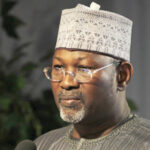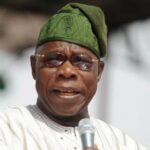It is no longer news that six African countries are currently under military rule. What is worrying is the fact that in the last two weeks, there have been rumours of attempted overthrow of civil rule in South Sudan and Sierra Leone, with the latter imposing nationwide curfew, in order to “protect democracy and peace”.
It is a widely held belief that democracy, results in prosperity and that most of the established democracies like the USA and UK and other European states, have a high per capita income, which greatly contributes to the stability of the countries, and they commit a lot of resources to human development.
Democracy as championed by Western countries provides for the protection of mostly civil and political rights, with courts given the powers to enforce these rights.
It is sad that the socio-economic development of citizens is left to the discretion of individual countries. As a result, the UN adopted an instrument titled ‘Declaration on the Right to Development’, which was meant to fill this gap.
It recognises the collective right of human beings to the very basic standards of housing, education, health, employment and political development. It also enjoins the eradication of hunger and fair distribution of income as essential requirements for the development of a society. Failure to implement these ideals has brought a lot of instability in many democracy-embracing countries.
African countries have adopted democracy as the mode of governance in the continent. However, democracy has not brought prosperity to Africans. According to the UNDP Human Index Report (2022), out of 191 states that were ranked in human development globally, 18 out of the 20 lowest-ranked states are from Africa.
Also, the 2022 Mo Ibrahim African Governance Index reported that the majority of Africans are unhappy with the level of governance in the continent, and approval ratings have been consistently declining in the last six years. As a result, it appears the citizens of countries that the military has taken over the reins of power are indifferent to the change, because of the hardships experienced under civil rule.
Nigerian citizens like their counterparts in other African countries, continue to face developmental challenges. Recently, an alarm was raised by experts, that 26.5 million people in 26 states of the federation may face acute food shortages in the short term.
In addition, the Nigerian government admitted that its programmes to alleviate poverty have not had the desired effect, because of the high rate of poverty in the country. This is hardly surprising, as 71 million Nigerians are said to be living in extreme poverty, while the National Bureau of Statistics gave the figure at 131 million as multidimensionality poor.
Despite these horrifying statistics, the Nigerian ruling class continue to lead flamboyant lifestyles, an instance of these is the N5.5 billion expended in buying luxury SUVs for federal legislators despite the outcry from the Nigerian public.
At the state level, some Governors are also accused of fiscal indiscipline, with that of Lagos State alleged to have spent N7,475,000 on “replacement of liquid fragrance in the office of Mr Governor”, as an instance of such unnecessary expenditure.
Misappropriation of government funds has greatly contributed to rising insecurity in all parts of Nigeria.
Consequently, for there to be peace and stability in Africa (and Nigeria in particular), the priorities of those in government must change. Citizens must be given access to basic necessities, to be able to lead productive lives, as a hunger-stricken electorate that is not educated, will surely not be interested in political development, and can easily be manipulated to partake in any destabilization plot.
Aliyu Ibrahim, PhD can be reached via [email protected]
 Join Daily Trust WhatsApp Community For Quick Access To News and Happenings Around You.
Join Daily Trust WhatsApp Community For Quick Access To News and Happenings Around You.

